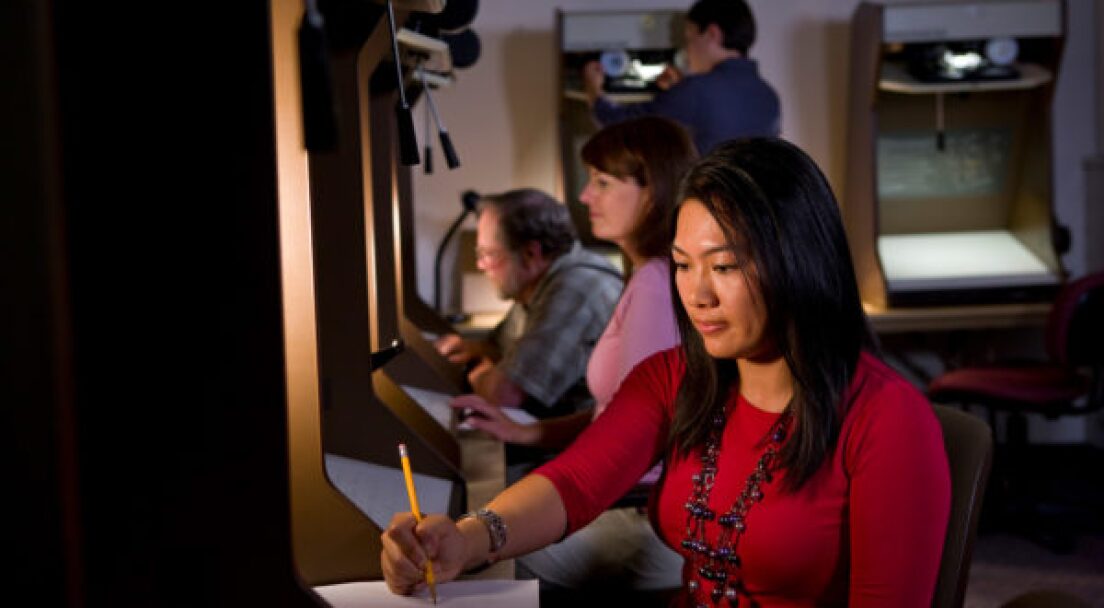
The associate degree in family history research provides students with an advanced understanding of family history research principles and practices. Students will learn advanced techniques, define a research problem, develop a research plan, gather information from documents, analyze evidence, and write conclusions. Students will use recognized professional standards and a variety of tools to complete research projects. They will be prepared to apply these research skills to various geographic specialty areas.
This degree is developed and granted by BYU-Idaho, with


Why choose this degree?
Training in family history research will provide you with the historical context, research skills, and hands-on technical learning required for you to become a competent family historian and genealogist. It also trains you in digital humanities, web publishing, human geography, genetic genealogy/DNA, editing and publishing, with ample opportunity for writing, workshops, and archival experience.
BYU-Pathway has found that certain combinations of certificates lead to better job opportunities. Most degrees have a

Essential Knowledge and Skills
Outcomes
- Define a research problem through critical analysis of information.
- Develop a plan to effectively and efficiently solve a research problem.
- Gather information from documents relevant to the research problem.
- Analyze evidence to reach appropriate conclusions.
- Record conclusions using recognized professional standards and a variety of tools.
- Prepare for professional work in the genealogical field.